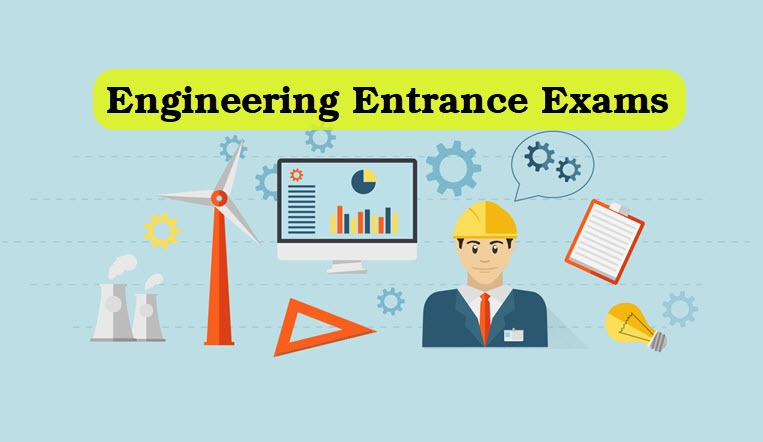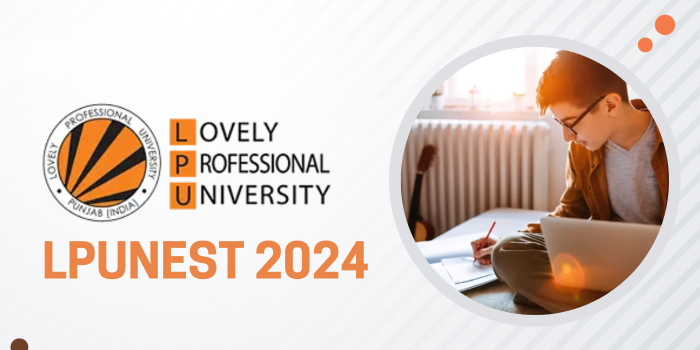Top 10 Engineering Entrance Exams 2024 in India After 12th
Engineering Admission 2024 : Aspiring engineers in India face a challenging and highly competitive field when it comes to engineering admission. In this article, we will explore the top 10 engineering entrance exams in India that are crucial for securing engineering admission in 2024. These exams are taken by millions of students each year, with the top-ranked exams offering access to India’s most prestigious engineering colleges. Candidates who score high on these exams can be assured of a bright future in the field of engineering. Engineering Application 2024 are now open. Shape your future with top-notch education and unlock a world of possibilities. Don’t miss the chance to embark on your engineering journey – apply now!
Key Takeaways
- Top 10 Engineering Entrance Exams in India determine admission to prestigious engineering colleges.
- Aspiring engineers need to research and prepare for these exams thoroughly.
- Each engineering entrance exam has its own eligibility criteria, exam pattern, syllabus, and application process.
- By understanding the details and requirements of these exams, engineering students can navigate the admission process more effectively.
- Preparing for these exams can increase a student’s chances of securing admission to their desired engineering colleges.
Engineering Entrance Exams in India
India is home to some of the best engineering colleges in the world. However, securing admission to these colleges requires taking the various engineering entrance exams conducted across the country.
Aspiring engineering students can appear for multiple entrance exams, including JEE Main, JEE Advanced, BITSAT, VITEEE, SRMJEEE, WBJEE, and others. Each of these exams has its specific requirements, eligibility criteria, exam pattern, syllabus, and application process that students must be aware of while preparing for them.
The eligibility criteria for these exams vary from each other. Some exams accept candidates who have completed intermediate with Physics, Mathematics, and Chemistry as core subjects, while others may have additional requirements like a minimum age limit or specific subject-wise cut-offs.
The exam pattern and syllabus for these engineering entrance exams in India are also diverse, with some exams being computer-based, while others being in an offline format. Additionally, the syllabus for each exam varies- some may include questions related to Physics, Chemistry, and Mathematics, while others may have additional questions on Language Proficiency, General Aptitude, or Logical Reasoning.
Important dates and deadlines vary for each engineering entrance exam in India and are usually released by respective exam authorities in advance. Students must keep a tab on these dates to avoid missing out on any crucial deadlines like the application process, registration dates, payment, and so on.
The application process for engineering entrance exams in India usually happens online, but some exams may still have an offline application process. Candidates must ensure they fill out the application forms correctly without any errors, attach the necessary documents, and pay the required fee to complete the application process.
Thus, by understanding the requirements and details of these engineering entrance exams in India, aspiring engineering students can be better prepared to tackle the admission process in 2024.
Top 10 Engineering Entrance Exams in India
If you’re looking to pursue engineering in one of India’s top colleges, clearing the right entrance exam can be a game-changer. Here are the top 10 engineering entrance exams that you need to know about for engineering admission in 2024:
| Exam Name | Conducting Authority | Exam Format | Participating Colleges |
| JEE Main | National Testing Agency (NTA) | Both Online and Offline; MCQs | All India Rank based admission to NITs, IIITs, CFITs, some state engineering colleges, and several private institutions |
| UPSEE | Dr. A.P.J. Abdul Kalam Technical University (AKTU), Uttar Pradesh | MCQs | Government and private colleges in Uttar Pradesh |
| MHT CET | State Common Entrance Test Cell, Maharashtra | MCQs | Government and private colleges in Maharashtra |
| VITEEE | Vellore Institute of Technology (VIT), Tamil Nadu | MCQs | Vellore Institute of Technology and its campuses in Andhra Pradesh, Bhopal, and Amravati |
| SRMJEEE | SRM Institute of Science and Technology (SRMIST), Tamil Nadu | MCQs | SRM Institute of Science and Technology and its campuses across India |
| LPUNEST | Lovely Professional University | Online | LPU offers engineering courses |
| COMEDK UGET | Consortium of Medical Engineering and Dental Colleges of Karnataka (COMEDK) | MCQs | Engineering colleges in Karnataka affiliated to COMEDK |
| BITSAT | Birla Institute of Technology and Science (BITS), Pilani | MCQs | Birla Institute of Technology and Science and its campuses in Pilani, Hyderabad, and Goa |
| GATE | Graduate Aptitude Test in Engineering (GATE) Committee | MCQs and Subjective; Differs for Different Subjects | Admission to MTech, MS, ME, and PhD programs in various engineering colleges and universities, and direct recruitment in Public Sector Units (PSUs) |
| IIT JEE Advanced | Indian Institutes of Technology (IITs) | MCQs and Subjective; Differs for Different Subjects | Admission to undergraduate courses in all IITs |
The significance of these entrance exams is evident from the sheer number of engineering colleges that consider them for admission to their programs. By scrutinizing the specific features and benefits of each exam, students can choose the right exam and increase their chances of admission to their desired college.
Whichever exam you choose, it is crucial to start preparing early. Determine the exam syllabus, practice consistently, and solve previous years’ question papers to build confidence and enhance your chances of success. Good luck!
Conclusion
To sum up, engineering entrance exams in India play a critical role in determining admission to prestigious engineering colleges across the country. The top 10 engineering entrance exams in India that we have discussed in this article offer a plethora of opportunities for students aspiring to pursue a career in engineering. By understanding the eligibility criteria, exam pattern, syllabus, and the application process for each exam, students can prepare better and increase their chances of securing admission to their desired colleges.
Students need to start their preparation early and adopt a strategic approach to succeed in these exams. With the help of practice tests, mock exams, and guidance from experts, aspirants can gain a competitive edge in the admission process.
We hope that this article has provided you with valuable insights into the engineering admission process in 2024. We wish you all the best in your academic endeavors and your future career as an engineer.
FAQ
What are the top 10 engineering entrance exams in India?
The top 10 engineering entrance exams in India are JEE Main, JEE Advanced, LPUNEST , BITSAT, VITEEE, SRMJEEE, WBJEE, MHT CET, COMEDK UGET, UPSEE, and KIITEE.
What is the eligibility criteria for engineering entrance exams in India?
The eligibility criteria for engineering entrance exams vary for each exam. Generally, candidates must have completed their 10+2 education with Physics, Chemistry, and Mathematics as compulsory subjects. Additionally, certain exams may have specific age limits and nationality requirements.
How can I apply for engineering entrance exams in India?
To apply for engineering entrance exams in India, candidates need to visit the official website of the respective exam they wish to appear for. The application process usually involves online registration, filling out personal details, uploading necessary documents, and payment of the application fee.
What is the exam pattern for engineering entrance exams in India?
The exam pattern for engineering entrance exams varies for each exam. Generally, these exams consist of multiple-choice questions (MCQs) covering subjects like Physics, Chemistry, and Mathematics. Some exams may also include sections on English, Logical Reasoning, or General Knowledge.
When are engineering entrance exams conducted in India?
Engineering entrance exams in India are conducted at different times of the year. The dates for these exams are usually announced by the respective conducting authorities. It is important for candidates to stay updated with the official notifications and important dates for each exam.
Can I appear for multiple engineering entrance exams?
Yes, candidates can appear for multiple engineering entrance exams in India. However, it is essential to carefully plan the exam schedule and ensure sufficient preparation time for each exam.
What are the participating colleges for engineering entrance exams in India?
The participating colleges for engineering entrance exams in India vary for each exam. These exams offer admission to several prestigious engineering colleges across the country, including Indian Institutes of Technology (IITs), National Institutes of Technology (NITs), Indian Institutes of Information Technology (IIITs), and various state and private engineering colleges Like LPU, Amity, VIT, Manipal ETc..
How can engineering entrance exams in India help in securing admission?
Engineering entrance exams in India play a crucial role in securing admission to top engineering colleges. These exams serve as a standardized evaluation system for filtering candidates based on their knowledge, skills, and aptitude in relevant subjects. High scores in these exams increase the chances of admission to premier institutions.
Is coaching necessary for engineering entrance exams in India?
While coaching is not mandatory for clearing engineering entrance exams in India, it can be beneficial for students who need additional guidance and practice. Coaching institutes provide structured study material, expert faculty, and mock tests to help students prepare for these competitive exams effectively.
How should I prepare for engineering entrance exams in India?
To prepare for engineering entrance exams in India, candidates must develop a solid study plan, understand the exam pattern and syllabus, and practice previous years’ question papers. Regular revision, solving mock tests, and seeking help from experts can also aid in comprehensive preparation.

















